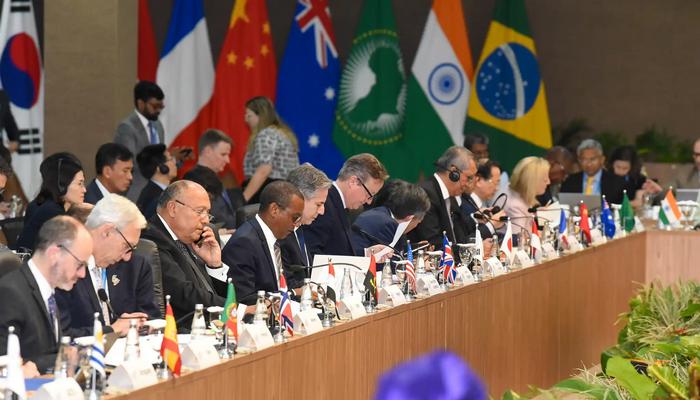All about the G20: How it works and its main objectives
The G20, or Group of 20, is an international platform that brings together the world’s largest economies to discuss and promote economic cooperation policies. Since its creation in 1999, the G20 has played a crucial role in formulating responses to global economic challenges such as the 2008 financial crisis and, more recently, the COVID-19 pandemic.
Advertisements
The importance of the G20 lies in its ability to bring together leaders from developed and developing economies to debate and establish economic guidelines. This not only promotes global economic stability, but also paves the way for discussions on critical issues such as international trade, climate change and sustainable development.
Advertisements
What is the G20?
The G20 is a forum made up of 19 countries and the European Union, representing the world’s largest economies. It was created as a response to the financial crises of the 1990s, with the aim of promoting international economic cooperation and ensuring global financial stability.

The G20’s main objectives include coordinating economic policies among its members, monitoring global financial markets and discussing issues affecting the world economy. The group meets annually at high-level summits, where world leaders and finance ministers discuss and define guidelines to face global economic challenges.
Advertisements
G20 members
The G20 members are: Argentina, Australia, Brazil, Canada, China, France, Germany, India, Indonesia, Italy, Japan, Mexico, Russia, Saudi Arabia, South Africa, South Korea, Turkey, United Kingdom, United States and the European Union. These countries are chosen based on their global economic importance, representing around 85% of the world’s Gross Domestic Product (GDP) and two-thirds of the global population.
The inclusion of emerging economies, such as Brazil, China and India, reflects recognition of their growing influence on the world economy. This diversity allows the G20 to approach global economic issues from a broader and more inclusive perspective, considering the interests of a variety of countries with different levels of development.
Main functions and objectives of the G20
The G20 plays a key role in coordinating economic and financial policies among the world’s major economies. Its main objectives are:
- Promote international economic cooperation: Facilitate dialogue and coordination of economic policies among the world’s largest economies to address global challenges;
- Ensure global financial stability: Work together to prevent and respond to financial crises, promoting the stability of international financial markets;
- Foster sustainable economic growth: Encourage policies that promote long-term economic growth, taking into account social and environmental aspects;
- Promote effective financial regulation: Develop and implement financial standards and regulations to increase transparency and reduce risks in the global financial system;
- Combat tax evasion and corruption: Work together to improve international cooperation in combating tax evasion, money laundering and corruption;
- Address global development issues: Address challenges such as poverty, inequality and sustainable development, seeking joint solutions to promote social and economic inclusion;
- Tackle climate change: Promote collective actions to combat climate change and promote the transition to more sustainable and low-carbon economies;
- Promote international trade: Encourage free, fair and sustainable international trade, seeking to reform international commercial institutions;
- Strengthen multilateral cooperation: Strengthen cooperation between member countries and other international organizations, such as the International Monetary Fund (IMF) and the World Bank, to address global challenges in a coordinated way.
These goals reflect the G20’s mission to promote international economic cooperation and ensure the stability and sustainable growth of the global economy.
G20 Meetings and Summits
G20 meetings and summits take place annually, with each member country holding the rotating presidency. These meetings provide a platform for world leaders to discuss economic policies, share ideas and forge agreements to address global challenges.
During these meetings, important decisions are made that affect the world economy, such as economic stimulus measures, financial reforms and sustainable development initiatives. G20 summits also serve as a forum for dialogue between member countries and other international organizations such as the International Monetary Fund (IMF) and the World Bank.
Criticisms and Challenges of the G20
Despite its importance, the G20 faces criticism regarding its effectiveness and representativeness. Some critics argue that the group is dominated by richer economies and does not give enough voice to developing countries. Furthermore, there are concerns about the lack of transparency and accountability in decisions made by the G20.
Challenges for the G20 include the need to strike a balance between the divergent interests of its members and the ability to respond quickly and effectively to global economic crises. The group also needs to deal with complex issues, such as regulating the financial sector and combating climate change, which require long-term cooperation and commitment.





